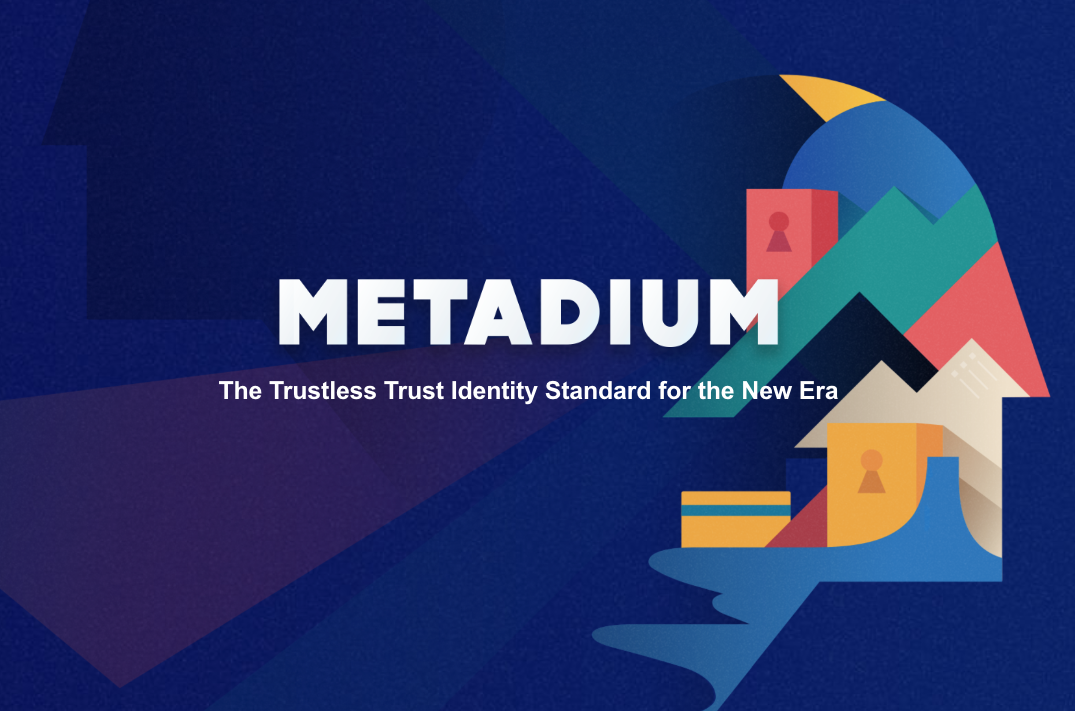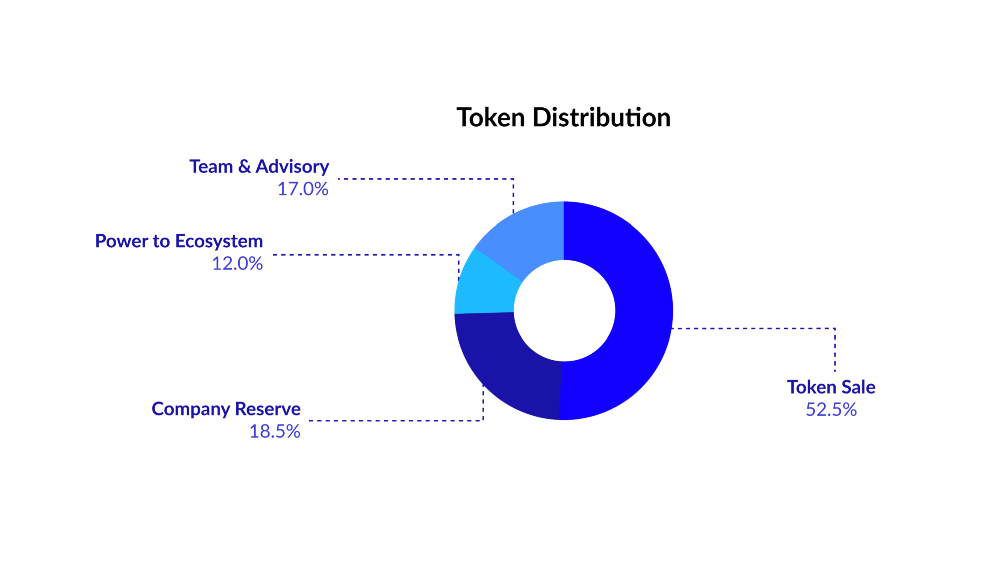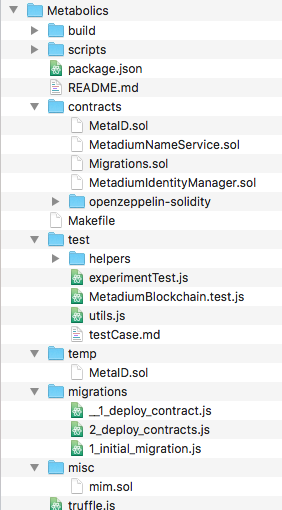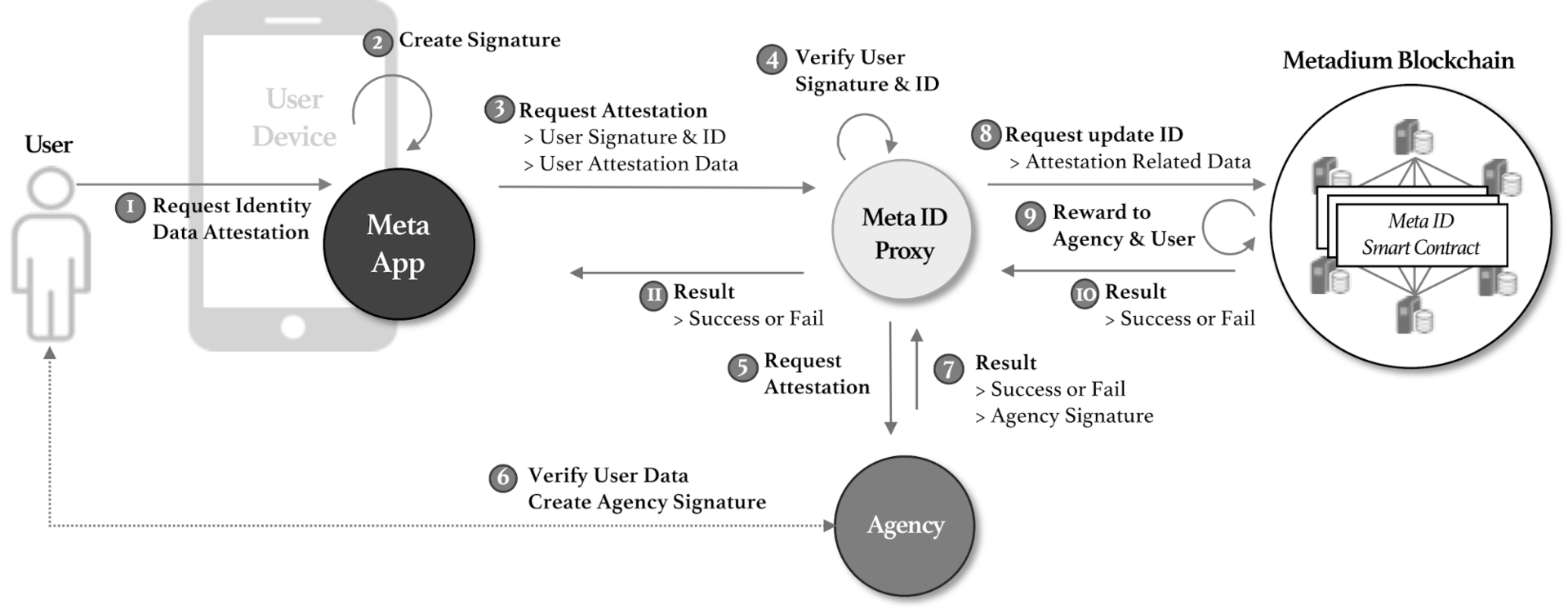Metadium
Identity Blockchain

Metadium is a project focused on solving one of the oracle problems in blockchain: identity. With a Proof of Authority consensus, Metadium uses a set number of accredited nodes to verify the relationship between a physical identity and virtual identity.
Metadium is a product by Coinplug, which was founded in Oct 2013.
Coinplug ”provides bitcoin exchange, wallet, okBitcard and payment processor services targeting Korea and the Asian market.”
Token metrics
https://medium.com/metadium/announcement-metadium-s-token-metrics-curiosity-resolved-7a457754e1de
$35M USD for 50% of tokens sold in the institution round

Market opportunity
Identity on blockchain
“Identity on blockchain” is a bottleneck, preventing a whole category of dapps from being made. In the non-blockchain world, consider how widespread a few oauth2 providers are; Oauth2 is the reason why you can login to 3rd party websites using your Google/Facebook/Twitter credentials. There is no standard for blockchain yet.
Solving sybil attacks
Sybil attacks are attacks “wherein a reputation system is subverted by forging identities in peer-to-peer networks.” Consider any polling or voting website - you can usually vote as many times as you want. For slightly more sophisticated systems, you might need to clear your cookies, change your IP address, or register a few more Facebook accounts. How do you design a secure system to prevent this?
For non-blockchain, solutions already exist. All that services need to do is cross reference their data with data at centralized entities, which serve as identity authorities; for example, government organizations and credit agencies.
For dapps, the solution is much more difficult to achieve. Being on decentralized networks, relying on a centralized oracle creates an unacceptable security risk. A decentralized network cannot easily be reset/reverted if a centralized system it depends on is compromised.
Competitive analysis
- Sovrin: The Sovrin Foundation has many large companies running validator nodes already, including law firms, crypto ecosystems, security firms, and financial firms. In addition, Microsoft publicly presented Sovrin tech being integrated into their Authenticator app. The Sovrin codebase is open-source and part of the Hyperledger Foundation.
- Civic: Raised $33M, acquired Identity.com.
- Bridge Protocol
- uPort
Team/Advisors/Partnerships
- Justin Park (CEO)
- Joined Metadium in 2018
- Experience in BD, Mobile and Online Gaming, Business Strategy, and Venture Capital
- Ryan Uhr (cofounder)
- CEO of Coinplug
- Experience as a CTO/founder of Celizion, project manager (Cisco), and engineer (Hyundai)
- Richard Yun (cofounder COO)
- Experience as a CEO (Conaxtech), Financial analyst (Cisco)
- Jeffrey Song (CTO Metadium, CSO Coinplug)
- Joined Coinplug in Oct 2014 as CSO
- Became CTO of Metadium in Sep 2017
- Senior engineer at Samsung
- PhD Computer Engineering University of British Columbia
- Songyi Lee (CSO)
- Founder of Zentrepreneurs, cofounder of 37coins
- Genie Bang (Blockchain Developer)
- “Expert at followings: Bitcoin, Ethreum, Blockchain Ethereum Smart Contract,Solidity Hyperledger Fabric Hyperledger Fabric composer Dapp developer others : c++, node.js, go,python, iOS-objectc&swift”
- Mansud Jeon (MetaID App Developer)
- Hanyang University
- 13 years of application development
- Eric Shin (MetaID App Developer)
- Chief Researcher at Coinplug
- Server Developer at Metadium
- Seunggon Kim (MetaID Server Developer)
- Benjamin Han (MetaID App Developer)
- Jessica Lee (Product Manager)
- Victoria Shangina (Graphic Designer)
- Natalie Lim (Finance Specialist)
- Young Kim (Strategic Planner/Partnership Manager)
- Calvin Park (Business Development)
- Jun Byeon (Business Development)
Advisors
Bo Shen (Founding Partner of FenBushi Capital)
Roger Ver (CEO of Bitcoin.com)
Jack Liu (Managing Director at Circle)
Vincent Zhou (Founding Partner of FBG Capital)
Renqi Shen (CIO of BlockAsset)
Renqi Shen (CIO of BlockAsset)
Kyungmo Kim (Director at Mirae Asset)
Yiseul Cho (Founder of Perceptra)
Brian Lio (CEO of Smith + Crown)
Matt Chwierut (Research Director at Smith + Crown)
Investors and Partners
BlockAsset, FBG, Smith + Crown, Kenetic Capital, 500 Startups, Blocktower, Connect Capital, Arrington XRP Capital, #HASHED, GBIC, Chainrock, Blueblock, Block Crafters Capital, 1kx, J Lab,了得资本, Blockchain Insight Corp, PreAngel, Fission Capital, Alice Capital
Partnerships
- Technology Partner (Coinplug)
- Unity
Competitive Advantage
As a blockchain company that has been around since 2013, Coinplug has already dealt with many of the growing pains other ICOs need to go through. The engineering team is already sizeable, and their advisors include some of the most well known people in crypto. The roster suggests that Metadium will have strong pre and post-ICO support.
The Unity partnership is very interesting because it means Metadium’s go to market strategy is more on the consumer market, unlike Sovrin, which is focusing on the enterprise market.
Tokenomics and Token Utility
META tokens are used as transaction fees, as part of every on-chain activity. These fees go to the nodes, aka block producers.
Block Producers (Nodes) are rewarded for producing blocks and securing the network.
Tokens are also spent for the attestation service: when users want to link or update identity data on the network.
Service Proivders reward users with META in return for using the identity data.
Code
As of 08-14-2018…
There is a private repo along with a public repo hosted on Github. Here is an overview of both:
Private repo:

- MetadiumIdentityManager.sol: Create/Update/Restore/Delete MetaIDs, with a couple other utility functions. Uses the MetadiumNameService.sol to determine who has permission to create MetaIDs.
- MetaID.sol: A simple ERC721 token for each person
- MetadiumNameService.sol: A mapping of contracts and permissions. Early, barebones smart contract.
- Migrations.sol: Included in Truffle
Public repo: https://github.com/METADIUM/go-metadium
35 commits ahead of ethereum/go-ethereum
Let’s look at changes since the fork from geth.
- cmd/geth/main.go: Starting here, it looks like additional flags have been added to the starting geth, including options for consensus method, metadium abi, fixed difficulty, fixed gas limit, max idle block, and blocks per turn. This also starts the metadium Admin.
- metadium/admin.go: This file provides a golang wrapper for the admin smart contracts. A lot of
callContract()calls, utility functions, and data structure wrangling. - metadium/contracts/MetadiumAdmin-template.sol: Admin contract for Metadium. It currently has the functionality to retrieve member info (
getMember), retrieve node info (getNode), add member (memberLinkAppend), add node (nodeLinkAppend), and some other helper functions around members and nodes.
The above files are the core files for metadium admin in the go-metadium repo. The following are additional minor changes
- cmd/geth/metadiumcmd.go: Implementation of the Metadium command line tool, to create new account, create new node, load a genesis config, and generate an admin contract.
- consensus/ethash/consensus.go: Handle rewards for miners
- core/block_validator.go, core/blockchain.go, core/chain_makers.go, core/genesis.go, core/state_processor.go, core/state_transition.go, core/gen_genesis.go, core/types/gen_header_json.go: Include
feesandrewardsin each block and verify they are correct. - metadium/miner/miner.go: Not much here yet.
- metadium/scripts/gmet.sh: script to start
gmetwith config options and smart contracts. Has options to start nodes via SSH. - miner/worker.go: The only addition is to not create a new block if there’s no work to do.
- node/api.go: Added
PeerInfoandMetadiumInfo, to provide info in the api.
Conclusion
What is done:
- Some core components of a Proof of Concept have been written: smart contracts for managing MetaIDs, permissions, admin functions, along with a fork of geth that adds support for the Metadium admin and admin smart contract.
- This project is at the stage where “self-sovereign ID creation service flow” (below image) is within reach.

What isn’t done yet:
- Providers still need a way to store hashed sensitive identity data on the blockchain, in a way that’s consumable by other entities using Metadium. This part might be tricky.
- Permissions: MetadiumNameService.sol needs to be fleshed out with more permissions.
- The attestation part of the project is not done yet.

Metadium has the core technical parts necessary to start fulfilling some use cases, where Agency attestation is not yet necessary. However, there is still some work to be done in order to get full functionality as described in the whitepaper.
I’m looking forward to see who participates as a Proof of Authority node, and which partnerships Metadium brings on, as they play a significant role in this project.
« Akash
MetaHash »